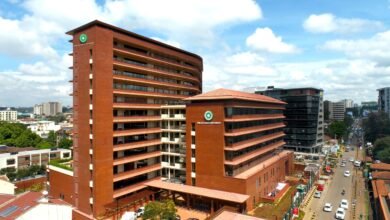
As the 8th Devolution Conference came to an end, it was clear that the counties still have a lot to do on the own source revenue to stop over-reliance on the National sharable revenue. ‘Counties must wean themselves from over-dependence on National Government revenue allocation’, tweeted the president on the 16th of August during the official opening of the Conference.
The counties, however, are not doing enough to get themselves out of this dependency and this is evidenced through a poor performance in their collection averaging 16% of their potential a report by CRA released last year notes. The entities have the potential to finance up-to 40% of the total county budgets of about Ksh.550 billion but only finances less than 10% of the total budgets.
But what is required for the counties to realise their full own source revenue potential? Bold execution is the key.
Article 209 of the Constitution allows Counties to impose, a) Property rates; b) Entertainment taxes; c) Charges for services they provide; and, d) Any other tax or licensing fee authorized by an Act of Parliament. Other county services that would be chargeable are contained in the 4th schedule part 2 of the constitution under the functions of the county.
Key to all strategies is for the County Executive Committee Member in charge of Finance to invoke Section 157 of the PFM Act (2012) and establish and appoint an independent county revenue collection and management body. The counties must then be detached from revenue collection and management and concentrate on other county government core mandate of delivering services to the citizens.
First, the revenue collection and management body should be empowered and supported towards their independence. It should have powers to recruit its employees, finance its operations, be responsible set its target and be answerable for the delivery of the target and other mandate to the executive.
The revenue body should then either directly or through an experienced consultancy, conduct situational and diagnostic analysis. Situational analysis will help find out for instance, why doesn’t the National Government pay CILOR (Contribution in Lieu of Rate) as it used to before devolution?
What should be done for the National Government to respect this obligation when demand is due. Diagnostic analysis on the other hand will help find out for instance why does tourism sector experience a proliferation of licenses and levies by both the National and County Governments. What should be done to align the levies and fees and harmonize regulatory obligation of the sector and whose responsibility. Further diagnostic will help tell why streams like parking does poorly yet its potential can clearly be estimated.
The mapping will help root out places where policies and legislation is required for effective revenue collection. Without revenue mapping, counties will continue using OSR figures as budget balancing numbers, setting ambitious targets without necessarily pointing out where this revenue will come from.
Automation of the revenue collection should be at 100% compliant ensuring no revenue agent handles cash and further all collections must be channeled to the county revenue fund as required by the PFM County Regulations Sec. 63(4) to avoid spending at source.
Consequently, revenue collection should be made an affair of all county stakeholders. The line departments should feel obligated and share any data required in time with the mandated body, the citizens must continuously be engaged to have their buy-in and define their responsibilities.
Majority of counties are operating multiple and outdated valuation rolls which have different rates previously charged by different municipalities and town councils within a county. This should be up-dated and harmonized.
The Counties should purpose to do a county statistical abstracts to offer a reliable county data, which the revenue collection and management entity would use as a credible data source.
Ultimately, the senate should be in the forefront supporting the counties in enacting legislations necessary to supporting revenue collection and enhancement. This should be their core mandate – assisting counties in revenue mobilization.





